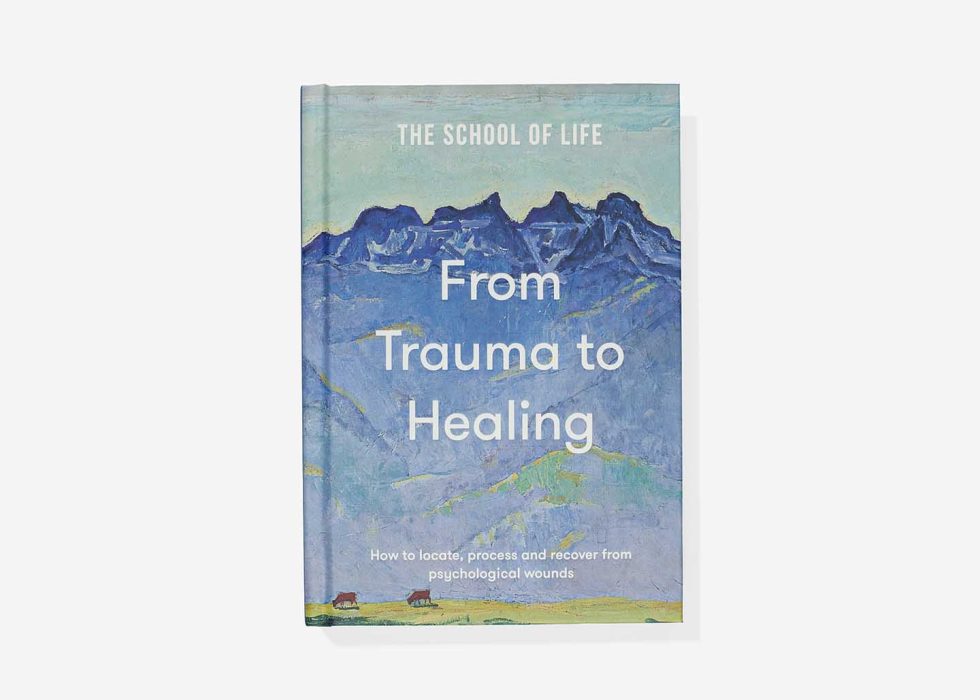Self-Knowledge • Trauma & Childhood
How to Tell If Someone Had a Difficult Childhood…
Whenever we see a struggling adult, someone who cannot bear to be loved or who is cross all the time, has no courage to be themselves or needs to be continually proved right, without necessarily understanding much of their story, we can hazard a guess: somewhere long ago, there was a shortfall of love. Love stands in relation to the demands of the growing emotional mind as vitamins stand to those of the developing body. Whenever there is mental unwellness, we can know that there will have been a failure of care and attunement, that there will have been an absence of tolerance and sympathy; that there will have been a failure to honour a small person’s reality.

Some of the following emotional laws are in operation:
— If someone is early on denied a sense that they matter, they will struggle all their lives to feel sufficiently significant to others. They may adopt a retiring manner or put on exaggerated displays of status or take to the stage and try to win themselves an audience, but the wound will be similar: they will be saddled with an ongoing sense that they do not deserve to be here. We cannot bear our own selves if we were not once very solidly at the centre of another’s world.
— If someone could not count on a primary caregiver who was warm and dependable, cosy and focused, they will doubt every candidate for love who later presents themselves for their consideration. Without knowing what is happening, they will trust no one; they will declare every potential partner to be boring, unattractive or ‘weird’ (for thinking better of them than they think of themselves). They may be charming on a date, they may long for a family, but they will be mercilessly drawn to destroy every relationship that is at any risk of working.
— If someone didn’t model for us how to communicate our real intentions, if someone didn’t give us an example of how to speak our needs, we will be angry but not realise it, we will sulk yet pretend we don’t care, we will say we’re fine when we’re crying inside; we’ll have no confidence that a conversation can ever work.
— If we were furious but were told to be good, if we were angry but weren’t allowed to bother anyone, if we desperately had to appease someone to hang on to the love we depended on, we’ll be malleable conformists who know how to adjust ourselves perfectly to all prevailing expectations… other than our own.
— If we were terrified – if there was constant shouting or a feeling of foreboding – the world won’t ever feel stable. Anxiety will be a constant. Sleep will be hard to find. The catastrophe that once occurred will be continually projected forward; something will always be anticipated to be on the verge of going very wrong – again.
— If our body was not cared for, if our boundaries were not respected or our appearance was not cherished, it will be hard not to despise the way we look; it will be hard to contemplate ourselves in the mirror, to sleep comfortably in the same room as someone else, to exercise regularly as one wants to, to eat in a way that is kind to ourselves. The heart may well get exhausted early, it will be difficult not to pick at our skin. Our body will know the score.
— If we were told we were a genius from the get-go, if we were assured we would have a golden destiny but had no idea how or why, if someone needed us to be special to compensate them for their own sense of ordinariness, we’ll struggle all our lives to accept what is humdrum and routine in ourselves. We won’t ever taste the luxury of being allowed simply to exist.
— If we were never listened to, making space for another will feel too much of a burden. How to learn to attend to someone else’s complexity when, at the crucial early period, no one bothered to give our own distinctive existence the attention it needed?
— If we learnt that the only way to be noticed was to make a drama, or act seductively, or to be extremely and inauthentically good, or very bad, how to dare to kick such habits (let alone even become aware of them) in later years when they have ceased to have anything to do with our own interests?
We are most of us experts in spotting and complaining about why other people are difficult. We should, when we feel strong enough, have the courage to understand and accept why – which ultimately requires us to take on board the full lamentable reality that the world is mad and off kilter not because of politics or technology or finance, but because we don’t first and foremost, at a collective level, begin to know how to love and care for small people.



























